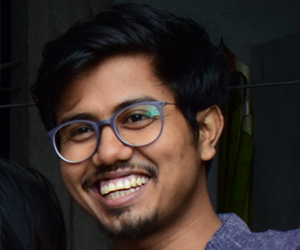On May 15, the Vivekananda International Foundation (VIF) organized a discussion on the book titled ‘Discovering India Through the Bharatiya Lens: Breaking the Colonial and Marxist Myth,' a book by Dr. Kamlesh Kumar Bajaj published by Prakhar Goonj Publications. The panel for the discussion consisted of the author, Dr. Bajaj; Dr. Arvind Gupta, Director, VIF (moderator); Mr. Raghvendra Singh, Senior Fellow, VIF; Dr. Sandipani Dash, Asst. Prof., Dept. of African Studies, DU; along with Lt. General R. K. Sawhney (Retd.) and Prof. Sujit Dutta.
Dr. Arvind Gupta delivered the opening remarks, followed by a detailed overview of the book by the author, Dr. Kamlesh Kumar Bajaj, in which he talked about the history of India written by the British during colonial rule. The erstwhile colonial masters interpreted our culture and religion in such a way that it created an inferiority complex in the minds of the Hindus. They alienated the Hindus from their own Vedic civilization and cultural heritage. Aryan Invasion Theory (AIT) was projected as the pillar of colonial history since it justifies the coming of invaders into India, beginning with the Aryans and ending with the British. The colonial narrative was continued even after independence, specifically by Jawaharlal Nehru, who looked at India through a Western lens, like a westerner would have done. The book challenges the Colonial and Marxist writings that suggest that the ancient Vedic civilization was primitive and barbaric and that India was living in the dark ages, waiting to be rescued by modernity brought by Christianity and science.
The book also explores the ancient Vedic civilization from the original sources and authorities like Maharishi Dayananda, Swami Vivekananda, Bal Gangadhar Tilak, Sri Aurobindo, Pandit Guru Datta Vidyarthi, and many other modern independent historians and scholars. The high level of philosophy, spirituality, and science in the ancient Vedic civilization. The book also looks at the history of Islamic invaders and the unfolding of Islam in India, its role in the freedom struggle, the impact of its ideology as a separate Muslim nation, and the relevance of these ideas today.
Dr. Sandipani Dash assessed the book based on the different topics the book tries to cover. This was followed by comments from Mr. Raghvendra Singh, who evaluated the current status of historiographical narratives and the urgent need to bring further corrections to them. This was accompanied by an engaging discussion. The session ended with concluding remarks and a vote of thanks by Dr. Arvind Gupta.










Post new comment